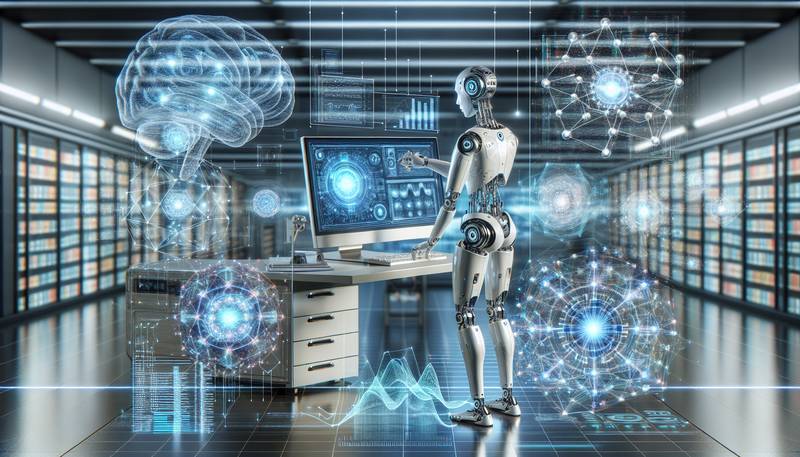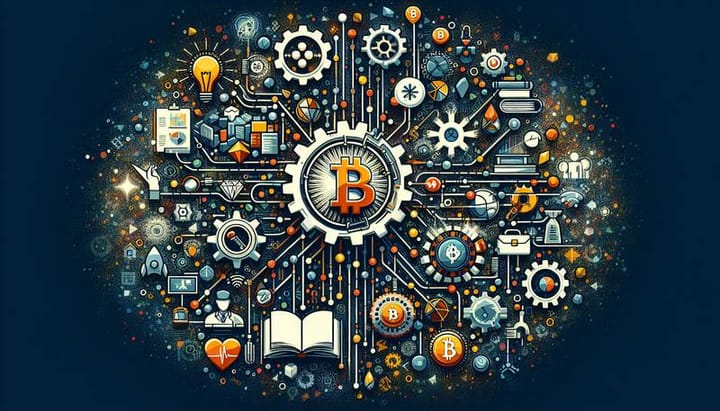The Future of Robotics: AI and Machine Learning

Introduction
The future of robotics is an exciting and rapidly evolving field that promises to revolutionize the way we live, work, and interact with the world around us. With the advent of artificial intelligence (AI) and machine learning, robots are becoming increasingly sophisticated, capable of performing tasks that were once thought to be the exclusive domain of humans. In this article, we will explore the ways in which AI and machine learning are shaping the future of robotics, and the potential implications for society as a whole.
The Rise of AI and Machine Learning
AI and machine learning are two of the most transformative technologies of our time. AI refers to the ability of a machine to think and learn like a human, while machine learning is a subset of AI that involves the use of algorithms to enable machines to improve their performance over time. Together, these technologies are enabling robots to become more autonomous, adaptable, and intelligent, with the potential to perform a wide range of tasks with minimal human intervention.
The Power of Data
One of the key drivers of the advancements in AI and machine learning is the explosion of data. With the proliferation of sensors, cameras, and other devices, robots are able to collect vast amounts of data about their environment, which can be analyzed and used to improve their performance. This data-driven approach to robotics is enabling machines to learn from their experiences, adapt to changing conditions, and make better decisions in real-time.
Machine Learning Algorithms
Machine learning algorithms are the backbone of AI-powered robots. These algorithms enable robots to learn from their experiences, identify patterns, and make predictions about future events. There are many different types of machine learning algorithms, including supervised learning, unsupervised learning, and reinforcement learning. Each of these approaches has its own strengths and weaknesses, and researchers are constantly developing new algorithms to improve the capabilities of robots.
The Future of Robotics
The future of robotics is a rapidly evolving field that promises to transform the way we live, work, and interact with the world around us. With the integration of AI and machine learning, robots are becoming increasingly sophisticated, capable of performing a wide range of tasks with minimal human intervention.
Advancements in Robotics
One of the most exciting areas of advancement in robotics is the development of collaborative robots, or cobots. These machines are designed to work alongside humans, assisting with tasks that are repetitive, dangerous, or require a high level of precision. Cobots are equipped with advanced sensors and algorithms that enable them to safely interact with humans, making them a valuable addition to any workplace.
Robots in Healthcare
Another area where robots are making a significant impact is in healthcare. From surgical robots that can perform complex procedures with a high degree of accuracy, to telemedicine robots that enable doctors to remotely diagnose and treat patients, the potential applications of AI-powered robots in healthcare are vast. As these technologies continue to evolve, they have the potential to improve patient outcomes and make healthcare more accessible and efficient.
Robots in Everyday Life
Robots are also becoming a more common presence in our everyday lives. From robotic vacuum cleaners that keep our homes clean, to delivery robots that bring us our packages, robots are increasingly becoming a part of our daily routines. As AI and machine learning continue to advance, we can expect to see even more sophisticated robots that are capable of performing a wide range of tasks in our homes and communities.
The Implications of Robotics
The rise of AI-powered robots has significant implications for society as a whole. On one hand, the increased automation of tasks that were once performed by humans has the potential to improve efficiency and productivity. On the other hand, there are concerns about the impact of robotics on employment, as machines become capable of performing an increasing number of jobs.
The Future of Work
One of the biggest concerns about the future of robotics is the potential impact on employment. As robots become more capable of performing tasks that were once the domain of humans, there is a fear that jobs will be lost to machines. However, there is also the potential for new jobs to be created, as the demand for workers with skills in AI and machine learning continues to grow. The key will be to ensure that workers have the skills and training needed to succeed in this new job market.
The Ethical Implications
There are also ethical implications to consider as AI-powered robots become more prevalent. As machines become more autonomous, there are concerns about accountability and the potential for harm. It will be important for society to establish clear guidelines and regulations to ensure that robots are used responsibly and ethically.
Conclusion
The future of robotics is an exciting and rapidly evolving field that promises to transform the way we live, work, and interact with the world around us. With the integration of AI and machine learning, robots are becoming more autonomous, adaptable, and intelligent, with the potential to perform a wide range of tasks with minimal human intervention. As we look to the future, it will be important to consider the implications of robotics for society as a whole, and to ensure that we are prepared for the changes that lie ahead.


